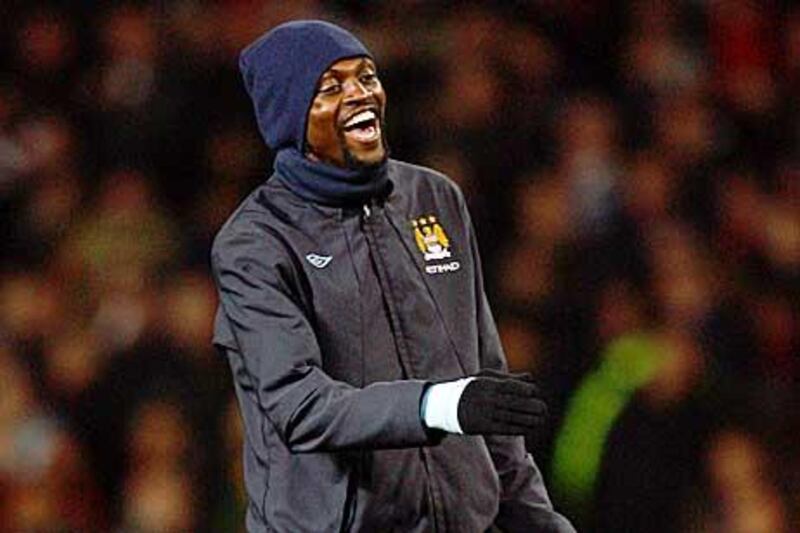Against the stunning backdrop of a pale cliff-face, on France's Cote D'Azur, the strikers of Monaco practice their volleys during training. It is the 2003/04 season, and Shabani Nonda, the prolific Congolese marksman, measures his stride and thumps his efforts cleanly and powerfully. A fine technique is also on show from the experienced Spaniard, Fernando Morientes.
Also in the drill is a gangly young man, tall and slender, still in his teens. Sheyi 'Manu' Adebayor meets his first volley with a spidery lurch. The ball curves horribly away from the target. Nonda, several years his senior, asks gently of the apprentice from Togo if he has ever practised volleying before.
In his later years, having achieved fame and great fortune as an excellent finisher, Adebayor would tell this story of naivety and rawness to show how far he has developed as a footballer since turning 20.
Since playing a marginal role in Monaco's unlikely journey to a Champions League final, in 2004, his career soared. He played the leading part in steering a tiny nation, Togo to a first World Cup; he gained huge popularity at Arsenal, where fans demand high standards of their centre-forwards and he became a figurehead in the wealth-and-glamour transformation of Manchester City.
Now, a few weeks from his 27th birthday, Adebayor is at a crossroads. He has been eclipsed in City's hierarchy of strikers.
His determination to prove himself may have been the source of a training ground altercation with teammate Kolo Toure yesterday. The pair were pictured being pulled apart by teammates.
This month's transfer window tempts him to go elsewhere - interest in him ranges from Real Madrid to Serie A, to cash-rich Malaga - to add a futher chapter to a story of determination, some controversies and an abundance of talent.
Adebayor grew up in Lome, the Togo capital, the son of Nigerian parents. He loved football and would train himself to make the best use of his height by hanging a ball on a string from the ceiling of the small family home, jumping again and again until he reached it with his head. Then the string would shorten; he would try to jump ever higher.
The dividends now look obvious. He is excellent in the air.
His idol, growing up in west Africa, was Nwankwo Kanu, the Nigerian whose No 4 Adebayor would wear for Togo. There is a passing facial and physical resemblance between the two players, and when, after four seasons in French football, with Metz and Monaco, Adebayor signed for Arsenal, Kanu's former club, he was nickname Baby Kanu.
The transfer excited some scepticism, at £7 million (Dh40.1m), because his scoring record in France had not been exceptional. Arsene Wenger, Arsenal's coach, recognised some nurturing was needed.
His upper-body musculature changed, his finishing sharpened. Not everybody who knew the player approved of what they saw as an altered attitude when, arriving in the Premier League, Adebayor had hit the big time.
"He needs to grow up, he's a spoilt baby," his coach with Togo, Stephen Keshi, told this reporter. As captain of Togo, for whom his goals had been crucial in taking the country to the Germany World Cup, Adebayor would become an agitator during a players' strike while there.
But at Arsenal he thrived. In his second full season he struck 24 Premier League goals. By the end of his third campaign, City had identified him as the target man to establish that club among the elite.
They paid Arsenal some £25m, and when Adebayor scored in each of his first four City games, felt instantly they had the right man. Adebayor still sensed he still points to prove.
On scoring against Arsenal for City, he celebrated ostentatiously in front of fans of his former club. He was also banned for an aggressive stamp at his ex-colleague Robin van Persie.
Twelve months ago, though, he had the sympathy of most in football when, on board the Togo team bus in Cabinda, Angola at the start of the African Cup of Nations, Adebayor and his international teammates came under gun attack from separatist rebels. Three men on board were killed.
Adebayor suffered not only grief but trauma, and his professional life appeared to suffer at stages after that. He retired from internationals.
Twelve months after the horrific events in Cabinda, seems keen to make a fresh start.






